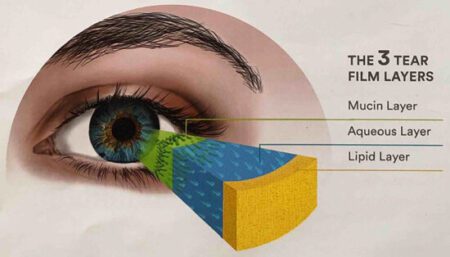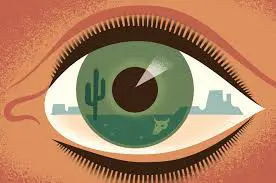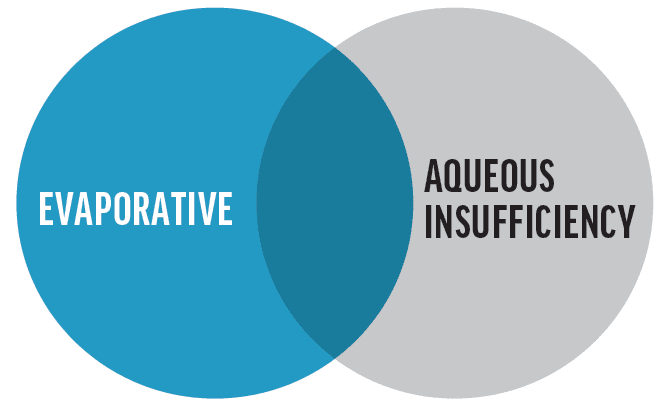
What Are the Symptoms of Dry Eyes?
- Scratchiness
- Foreign Body Sensation
- Pain
- Redness
- Watery Discharge
- Heaviness in Eyelids
- Light Sensitivity
- Eye Fatigue
- Blurred Vision
If you experience these symptoms, you may be suffering from dry eye disease.
What is Dry Eye Disease?
Dry eye disease occurs when the balance of factors that keep the eyes moist and comfortable is disrupted. This can result from inadequate tear production, tear evaporation, or underlying medical conditions.
The risk of developing dry eye disease increases with age, and women are more likely to be affected than men. However, the condition is becoming increasingly common among younger individuals due to increased screen time and other lifestyle factors.
Dry eyes can start out as uncomfortable and annoying, but left untreated, dry eye disease can lead to serious complications, including permanent vision impairment. Early diagnosis and treatment are crucial to prevent long-term damage.

What Role Do Our Tears Have in Dry Eye Disease?
The tear film is a complex fluid with various substances that work together to create a protective barrier over the eye's surface.
Major tear film components:
The balance of these components is vital for a healthy tear film, ensuring optimal vision and comfort. Any disruption to this balance causes dry eyes.
What Are the Causes of Dry Eyes?
There are two leading causes of dry eyes, and often there is overlap between these two main causes of dry eyes.

Several factors can affect tear production or the condition of the eye in general. Dry eyes can result from many factors, including but not limited to:
Incomplete Blink
Proper blinking spreads our tears evenly over the ocular surface and helps our lids secrete oil from our Meibomian glands.
Age
The amount and quality of tears the eyes produce decrease with age
Gender
Due to hormonal changes, pregnancy, the use of contraceptives, and menopause, women have a higher chance of developing dry eyes.
Cosmetics & Skincare Products
You may find ingredients that are toxic and cause dry eyes in cosmetic and skin care products. Products exist that are hypoallergenic, organic, or vegan.
Eyelid Problems
Conditions such as ectropion (out-turning of the lids) and entropion (in-turning of the lids) can produce more exposure or friction and cause the normal tear film to break up faster
Recent Surgical Procedures
Refractive eye surgery like LASIK can cause decreased tear production. This is due to a permanent change to the front surface of the eye.
Medications
Medications such as blood pressure medications, antidepressants, sleeping pills, heartburn tablets, drugs for acne, birth control, hormone replacement, allergies, cold, and Parkinson’s disease can reduce tear production.
Health Conditions
Vitamin A deficiency and autoimmune diseases like rheumatoid arthritis, Sjögren’s syndrome, scleroderma, lupus, and thyroid disease can decrease tear production
Indoor and Outdoor Environmental Conditions
Exposure to dry air, whether indoors (air conditioning, heating) or outdoors (dry climates, wind, pollution), can contribute to dry eyes.
Lifestyle Factors
Substance use (tobacco, excessive alcohol), lack of sleep, and dehydration can all lead to tear film instability
Contact Lenses
Wearing contact lenses can irritate the eyes and contribute to dryness
Screen Time
Excessive screen use can lead to reduced blinking, leading to tear evaporation.

How Might Dry Eyes Affect You?
Short-term effects of dry eye disease include constant eye irritation, blurry vision, regularly tired eyes, and difficulty wearing contact lenses.
Therefore, diagnosing and treating dry eye disease in its early stages is essential.
